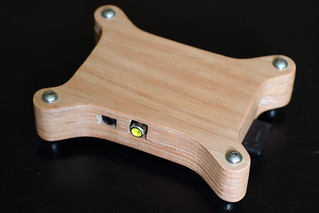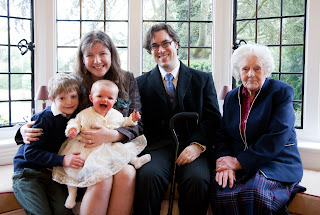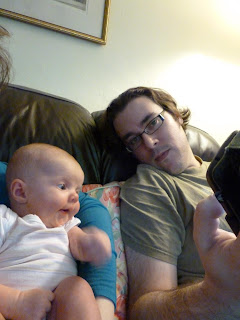This has been written for the TTA Press Advent Calendar of Flash Fiction. This story was published last year and I'd have hated to miss out on my second year.
---
The LED bulb flickered unhealthily; a blot upon the otherwise perfect, yet sadly already tangled string of diligently soldered, centuries old scrap. Fi flicked at it, hoping against hope that some physical assault might quickly nurse it to health. It blinked silently into a silicon afterlife. She pulled a face.
“Now, how did it go again?” she asked herself before delicately clearing her throat.
#Once in loyal David’s city stood a lovely cattle shed...
Her melody was strong, thanks to the carefully resurrected tube-vid she’d pulled from a long dead server. The words, alas, were only an approximation and she had spent too many nights wondering to whom David had been loyal and what exactly made the shed lovely . As for cattle...she was clueless.
Nonetheless, her thesis was progressing wonderfully. Winter Festivals of the Ancients (Christmas to Winterval and beyond) was approximately the requisite word count and Fi was only left to complete the practical elements which would undoubtedly clinch the qualification she had been working towards for the last three years.
But most of all, she felt an overwhelming desire to share in the ceremonies she had studied for so long. Pudding, cracker, tinsel...words so resonant in onomatopoeia, they followed her ceaselessly with an echo which, she’d have sworn, sounded exactly like how Sleigh Bells should.
“Ho ho ho.” she said, gravely, as one might intone ‘Here goes nothing...’
She picked up the lights and carried them reverently to her tree. This had been her greatest find. The polyvinyl chloride-covered branches had survived the years perfectly, even when the box around it had slowly mouldered into a sticky dust. The lights were carefully draped over all seven foot of the plucky little piece of ancient history, glowing gently in their inductive current. Fi’s father, who had first installed in his little daughter a love for all things ancient, had contributed the star, which he had painstakingly worked in pieces of multi-coloured plastic-sheathed wires. It certainly gave some vibrancy to the deep-green monolith.
But it just wasn’t right. Even with the lights and the star, it was missing something. She had given up almost immediately at the idea of tinsel – some kind of amorphous caterpillar of metallic explosions – far beyond her skill to replicate. And besides, she’d read the hallowed words of J Asher who pronounced it ‘tacky’. And getting anything sticky on her beloved tree was not going to happen.
She knew what was needed, but, again, the solution was beyond her ability to manufacture. A little old-fashioned electronics, no problems. But crafting the tiny glass spheres, not to mention turning them into miniature galaxies of glitter was impossible. She sighed, gesturing to cut the current, and picked up her coat which she'd left slumped over her work bench. The red felt clamped tightly against her body in sympathy and she felt the pick-ups link and warm against her. Connected, she ventured out into the cold, deciding that a walk away from her obsession might allow an answer to be found.
-
Most Highly Flavoured Gravy. She could almost taste it, sweet and rich. It helped counteract the cloying, bitter pollution sweeping around her. She could feel the static charge in her clothes working hard to repel the grimy onslaught. The nape of her neck tingled.
She followed the path, weaving through the university buildings. She was well beyond the halls of history, old, dilapidated structures of steel and glass. She looked enviously at the newly constructed, shiny ceramic palace looming up at her through the clouds of chemicals. Those pompous xeno-biologists must have some scandalous information about the Dean, she decided, to have wrangled such an extravagant piece of real-estate.
Fi skirted the new building, muttering as she walked. How like this world, in the grip of a new, self created dark age, to turn its collective back on the wisdom of history and look towards an unknown, alien society for answers. Dark age indeed, she thought, feeling for a terrible moment, extremely lost in the black, noisome night. She looked down at her sleeve and saw the lights project through the fibres, showing her the surroundings in plan view. She’d not come this way before, around the back of the XB building. A huge gust nearly knocked her off her feet, and she hunkered down, imagining herself surrounded by pure, white snow. Walking in the steps of Wenceslas, feeling heat from his heavenly footfall.
There was a tremendous crash and she let out a little scream. Eyes wide open, she was suddenly dazzled by a security light. A huge plastic skip lid had been hurled open in the force of the wind, allowing the top layer of rubbish to fly – broken silicon, soiled plastic bags and even the odd piece of paper cavorting in their escape.
And then she saw them. Even in the fug of fumes and dust and debris, she made out the glimmer. The shine. Every colour of the rainbow...and a few she’d never even seen before.
Her jaw, though not visible under the layers of clothing, was nearly welded to her chest. They were PERFECT! How was it even possible?
She reached in and cradled one sphere in her gloved hands, feeling the delicate perfection of the glittery globe. She felt her heart miss a beat as she said to herself, quietly,
“My baubles!”
-
The skip had held an even thirty of the little shells, each one a different shade and uniquely mottled. Although hard and delicate, like the thinnest ceramic, the top of each shell ended in an organic loop, looking for all the world like the rubbery tail she’d had on an ancient toy pig her father had given her as a child. And it was from these that she hung them.
The tree was now perfect – sparse, certainly, but it didn't look lonely any more. The tree had presence. Warmth. Life.
Fi sat there, entranced. She sang every carol she knew quietly to herself, the reflected sparkle of the tree's lights bright in her dark eyes. Her burnished bronze skin glowed with warmth that came only partially from the tree. Her heart soared.
Christmas was coming!
-
Anyone reading Fi's thesis would have learnt that Christmas had been a festival which bound a large portion of humanity together at the end of each year. This time was characterised by the giving and receiving of gifts, the preparation and eventual consumption (often over the period of several weeks) of a single, large meal, all of which took place in a traditionally adorned space; most often the living quarters of a family unit.
The festival crumbled during the first great energy crisis. With no fossil fuels to produce their plastic toys or power their giant generators, the fragile Christmas of the twenty-second century had collapsed. There was a version, smaller and more intimate, which remained in some of the more self-sufficient areas of eastern Europe. But even there, by the time the cultural war swept the globe, Jolly St Nic was just a random reddish memory.
And this was a tragedy. Fi knew what possibilities Christmas held for her world. She'd stumbled across an ancient text and one line had lept out at her, sinking hooks into her eyes, her brain, her heart.
'I will honour Christmas in my heart and try to keep it every day of the year.'
Yes. Every day of the year. And she needed to be a ghost, pointing a finger at her world. This may be our dark future, but look to our glorious shared past! We could be so happy!
-
And, indeed, Fi could well have been correct. For example, the first investigative crew who came to her workshop the following day were impressed by the beautiful tree, standing before it while the lights gleamed. The star shone in a mass of coloured sprays of wire.
It seemed a shame, though, that all the baubles lay shattered on the floor; a mass of delicate flakes, like broken eggshells.
Fi looked rather shell like, her organs torn from a series of jagged wounds in her torso. Her beautiful bronze skin turned a mottled grey. Her sparkly eyes dull. Her carols silent.
If only the crew had known about the terrible mistake made by the nearby xeno-biology team - the alien eggs they had managed to throw out with the metaphorical bath-water. The eggs had been studied, delicately cushioned in thick fleece beddings, and after months of careful examination they had found absolutely nothing. If only they had hung them from their delicate little hooks and showered them in little pin-pricks of light, then their study might not have been in vain.
And if someone had asked the xeno-biologists why these eggs had been studied so carefully, they would have replied that, on a planet so sparse, they were surprised to see any sign of life at all. It was as if everything else had long since been consumed...
-
Some kindly soul would eventually publish Fi's thesis in her memory – the poor student murdered whilst working to make the world a better place. It became an instant best-seller, rekindling an interest in ancient festivals and the ways one might decorate their dwelling appropriately. A factory was set up manufacturing exquisitely designed fake trees. The tips of their needles were made to glow, negating the need for powered lights. And people, always on the look out for a freebee, were very pleased to come across what looked like baubles, often left in the dark corners of alleyways. Gratefully, people picked them up and bought them back home. They would hang them on the branches of their trees and sing, quietly to each other.
Ho. Ho. Ho.






